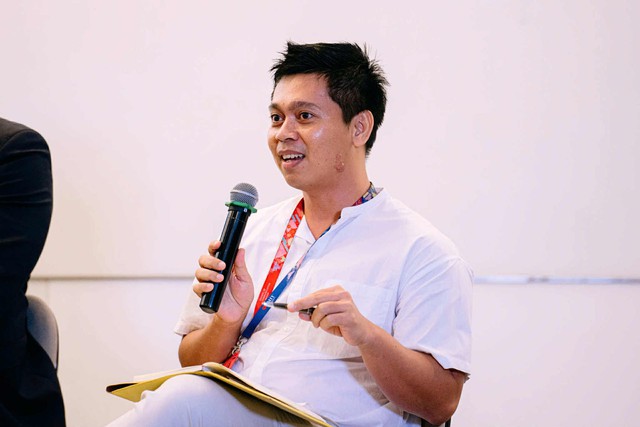
At Nobel Prize Exhibition and Dialogue in Ho Chi Minh City, experts discuss AI innovation scrutiny amid ethical oversight
As artificial intelligence (AI) reshapes many industries worldwide, experts at the Nobel Prize Exhibition and Dialogue 2025 in Ho Chi Minh City this week warned that rapid innovation must be aligned with responsibility to serve humanity and avoid societal concern.
The dialogue sparked a discussion on a balanced approach between technological innovations and societal responsibility.
Virginia Dignum, an associate professor of AI responsibility at Umeå University in Sweden, described it as a "double-edged sword."
While AI offers unprecedented problem-solving capabilities, it also carries risks that can undermine the foundation of society.
"Like Afred Nobel, who always considered the impacts of scientific progress, we in the AI era must ask: what are the consequences of our work? Can AI be utilized for the goodwill of humanity?" said Prof. Dignum.
At its core, AI is fundamentally human-based, for it draws from vast pools of personal data, emotions, and behavioral cues.
Every search and reaction feeds the system, shaping outputs that mirror and refine individual preferences over time.
Thus, AI is never truly 'neutral'; in fact, it often amplifies ideas, making them appear larger or more significant than they initially were.
"The more powerful the algorithms, the more likely they are to reinforce existing bias," Dignum said, emphasizing that the task is not to resist AI but to guide it responsibly, as innovation and ethics together underpin progress and human welfare.
Agreeing with Prof. Dignum, Dr. Abdul Rohman from RMIT University Vietnam noted that the global AI race remains technology-centric, often neglecting the principle that AI must revolve around people.
He pointed to Ho Chi Minh City's deaf community: with a limited sign-language vocabulary, they are excluded from AI systems that rely on verbal input.
"When data ignores minorities, innovation fails," he said, urging Vietnam to localize AI to the emerging contexts.

Dr. Abdul Rohman, senior lecturer of RMIT Vietnam. Photo: Thanh Hiep / Tuoi Tre
Beyond major cities, vast rural areas still lack digital infrastructure.
There exists risk that AI may deepen inequality, especially if people learn to use it without knowing how to protect themselves.
Amid heavy investment in AI hardware, experts stress that education, not technology, determines who leads in productivity and innovation.
Dr. Jack Ilmonen from Keiser University in Florida said that nations equipping citizens to collaborate effectively with AI will gain the edge.
Collective human potential, amplified by AI, becomes the true strategic advantage, he remarked.
For Dr. Rita Mokbel, CEO of Ericsson Vietnam, this requires closer cooperation between governmental bodies, academia, and industry, starting with integrating AI into curricula.
"When the public sector leads and unites with academia and business, meaningful breakthroughs can follow," she said.
The Nobel Prize Exhibition and Dialogue 2025 was co-organized by the Swedish Embassy in Vietnam and RMIT University Vietnam in Ho Chi Minh City from September 8 to 19.
Ngoc Duc - Xuan Thao - Tam Duong - Van Giang / Tuoi Tre News